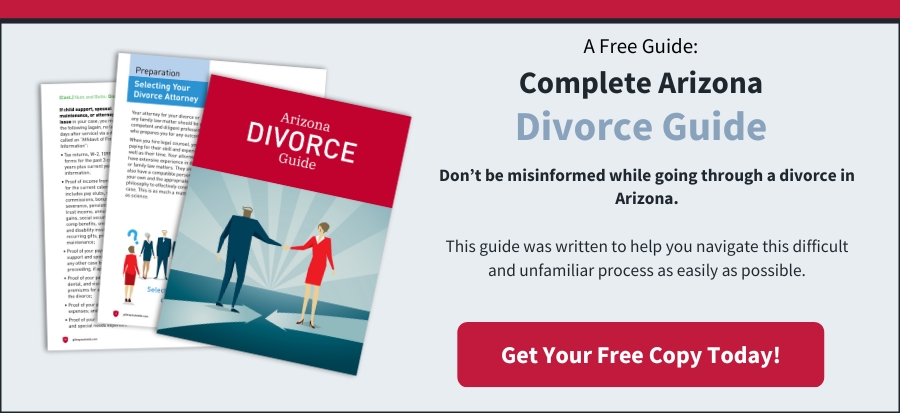When it comes to the subject of adultery and divorce in Arizona, most people have heard one side of the story. They may think that if one spouse commits adultery, the other is automatically entitled to a divorce. This isn’t always the case. To get a divorce based on adultery in Arizona, you must be able to prove that your spouse had sexual intercourse with someone else. This can be difficult to do, especially if there is no physical evidence.
It is no secret that adultery can be a factor in divorce. Arizona is one of the states that specifically recognize adultery as grounds for divorce. But what exactly does this mean? How do you prove adultery occurred? And what are the implications if it is proven?
Here is a closer look at adultery and its role in Arizona divorces:
What Is Adultery?
Adultery is defined as sexual intercourse between a married person and someone other than their spouse. It can also include any form of sexual contact or communication with someone other than your spouse.
Proving Adultery Occurred
To prove that adultery occurred, you must provide evidence that shows both parties were involved in an intimate relationship. This can be done through eyewitness testimony, photos or videos, or other forms of communication between the two parties.
If you are unable to provide direct evidence that adultery occurred, you may still be able to prove it through circumstantial evidence. This could include things like a sudden change in behavior, unexplained absences, or financial problems.
What counts as adultery in Arizona?
Adultery can be used as grounds for divorce in Arizona. If one party can prove that the other party had an affair, then the court may award them a divorce based on the adultery. However, there are some things to keep in mind when it comes to adultery and divorce in Arizona:
- You cannot use your adultery as grounds for a divorce. The adulterous act must have been committed by your spouse.
- You must be able to provide evidence that supports your allegations of adultery. This could include testimony from witnesses or email correspondence between yourself and the other party.
- Finally, even if you can prove that your spouse committed adultery, the court may still decide not to grant you a divorce based on this ground. This is because Arizona is a no-fault state, which means that the court does not have to find fault to grant a divorce.
What are the penalties for adultery in Arizona?
Adultery is a felony in Arizona and is punishable by up to five years in prison. If you are convicted of adultery, you will also be required to pay a fine of up to $250,000.
There are a few exceptions to this rule, however. If you can prove that your spouse was cheating on you, then you may be able to get a divorce without having to go through the criminal process. Additionally, if your spouse was cheating on you with someone who is not your legal spouse, then you may also be able to get a divorce without having to go through the criminal process.
What You Need to Know About Arizona Divorce Laws
If you are considering a divorce in Arizona, it is important to understand the state’s laws and procedures. Here is an overview of how to get a divorce in Arizona.
Grounds for divorce – In Arizona, you can file for divorce on the grounds of adultery, desertion, imprisonment, mental illness, chronic drug or alcohol abuse, or non-support. You do not need to prove that your spouse committed any of these acts; you only need to allege that they occurred.
Divorce proceedings – If you file for divorce based on grounds other than no-fault (such as adultery), your spouse has the opportunity to contest the allegations. If your spouse does not contest the allegations, the court will grant a default judgment and you will be divorced. If your spouse does contest the allegations, the court will hold a hearing at which both sides can present evidence. The court will then decide whether or not to grant the divorce.
Divorce decree – Once the court grants a divorce, it will issue a divorce decree. This document officially ends your marriage and outlines any terms of the divorce, such as child custody and support arrangements.
How Long Do Divorces Take in Arizona?
The duration of a divorce in Arizona varies greatly. Keep in mind that a legal separation is not the same as a divorce in Arizona. While the motivations may be identical, Arizona law makes a fundamental distinction.
Contested Divorce in Arizona
A contentious divorce is one in which the couple can’t resolve one or more issues. It does not always have to be a full-fledged battle. Even though you may not agree, family law, such as divorce, is a civil procedure. However, when the couple disagrees about many key issues, it usually indicates that they do not see eye to eye on a few major topics.
Because you must complete the whole Arizona divorce procedure in a contested divorce, it will take longer. In many cases, an uncontested divorce does not need to go through all of the phases, and you may swiftly conclude.
Uncontested Divorce in Arizona
An uncontested divorce is one option, and this type of divorce can be less expensive and faster than other options. Technically, An uncontested divorce might be completed in as short as 70 days, although this is an unusual occurrence. An uncontested divorce usually takes 90 to 120 days.
An uncontested divorce is one in which both spouses consent to the divorce. Every element of the split is consensual by both parties. That does not imply that your spouse accepts your decision right away. They might agree on a final phrase after they’ve worked through their issues.
Are You Looking for a Family Law Attorney You Can Trust?
The attorneys at GillespieShields are well-versed in a variety of different legal fields, ranging from family law to civil suits, employment disputes and probate cases. Although we specialize in several areas of practice, our greatest passion is family law. We believe in giving families peace of mind no matter their situation, and we fight hard to maintain that peace. Whether you’re filing for dissolution or divorce, determining custody of your children, or thinking about adopting children, our experienced attorneys are here to help you every step of the way. During our private, one-on-one consultation, we’ll take the necessary time to answer all of our questions surrounding Arizona’s family laws, your family’s unique situation, and the possible court outcomes. Contact us today for your consultation!
The materials available on this website are for informational and entertainment purposes only and not for the purpose of providing legal advice. You should contact your attorney to obtain advice with respect to any particular issue or problem. You should not act or refrain from acting on the basis of any content included in this site without seeking legal or other professional advice. The information presented on this website may not reflect the most current legal developments. No action should be taken in reliance on the information contained on this website and we disclaim all liability in respect to actions taken or not taken based on any or all of the contents of this site to the fullest extent permitted by law.
Family Law Attorney in Phoenix & Mesa
Founded in 1985, GillespieShields is the top family law firm in Phoenix & Mesa. We’re ready to put our years of experience to work to resolve your legal issue.


